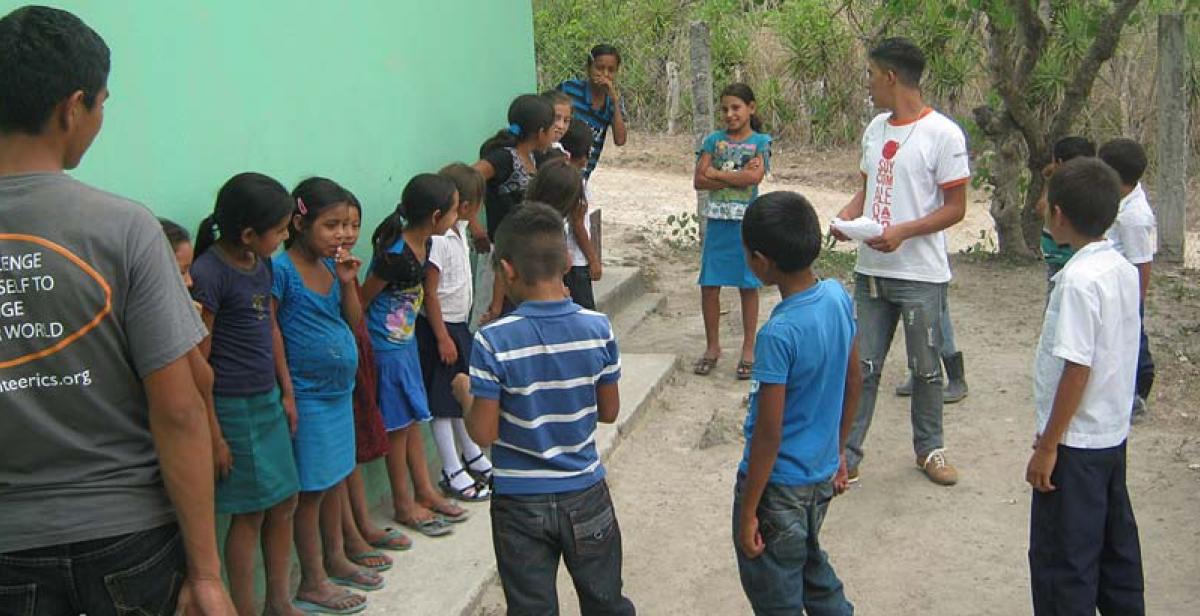The difficulties of living in a country where you can’t understand what anyone is saying
The Englishman Abroad is a curious phenomenon. Stereotypically, they are thought of as an exceptionally lazy race when it comes to learning a new language, with the general laconic attitude, “if I speak slowly enough, they’ll get it… and if not I’ll just use Google Translate”. I would strongly advise these people not to broaden their horizons as far as rural Honduras, where knowledge of basic English is very rare, and access to translation services is severely impeded by the lack of WiFi available in coffee plantations. Here, we have had no choice but to learn Spanish or encounter daily inconveniences such as the inability to order a baleada with no egg and extra avocado.
I began my Honduran experience with a heady plunge into the deep end of the pool of Español, when we were placed in host families with just one other national volunteer for our orientation week in Santa Lucia. To suddenly find yourself living only with Spanish speakers is a daunting experience, especially when, like me, talking is your favourite hobby. That first night in Honduras I decided that I needed to view this ‘language barrier’ as nothing more than a small and easily surmountable garden wall, which should not prevent my participation in the animated conversation taking place between my national counterpart, Jorge, and our host family. Armed with this attitude and my dictionary I proceeded to leap into the conversation by means of occasionally interjecting words at random, which, while not amounting to any sort of rational communication, proved to be entertaining to all and revealed that Jorge and I share a very similar sense of humour. This discovery kick-started a week of laughing until we cried, talking together for hours and somehow unconsciously developing my Spanish skills.
Inevitably, the idiosyncrasies of language have led to many an embarrassing moment. It took a while for me to realise I had been constantly announcing that I was pregnant (and worse), referring to “Thursday” as “eggs” (jueves/huevos - it’s a justifiable mistake), and telling a national volunteer that I felt like his woman (I meant mother...). However, I like to believe that such miscommunications are received with amusement, rather than used to confirm any suspicions that the British are in fact wholly depraved.
There are times, of course, when that small garden wall of a language barrier does seem to grow into an unconquerable prison edifice, particularly in project meetings when trying to convey many separate and complex opinions at any given time. We’ve learnt that such meetings should be expected to take three times as long as they would in English, and that plans which we think are agreed on may be changed without warning when the time comes to carry them out. Whilst this may test the patience of those used to the regimented schedule of such events in England, it has without doubt developed the ‘dimensions’ encouraged by Progressio of adaptability and resilience.
Now, half-way through the project, I am confident enough in my Spanish to run classes on Climate Change, produce a radio show and, in a week’s time, present in front of 800 schoolchildren at an event celebrating Tree Day. For someone who couldn’t speak the language a month ago, these are certainly some of the proudest achievements I will be taking away from my ICS experience. And I can only apologise to any waitress I have confused with orders of baleadas without the Thursdays.
Written by ICS volunteer Sarah Yardley. Photo by ICS volunteer Francis Bejarano.



